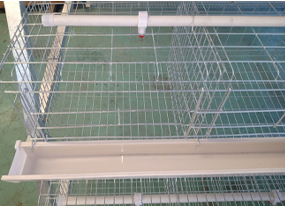vacuum packaging machine food
Dec . 22, 2024 03:35 Back to list
vacuum packaging machine food
The Importance of Vacuum Packaging Machines in Food Preservation
In today's fast-paced world, where convenience and efficiency are paramount, vacuum packaging machines have emerged as essential tools in the food industry. These machines not only enhance food storage but also significantly extend the shelf life of various products. This article will explore the importance of vacuum packaging machines in food preservation, their benefits, and their applications in both commercial and home settings.
What is Vacuum Packaging?
Vacuum packaging is a method that removes air from a package before sealing it. This process minimizes the amount of oxygen, which is a prime catalyst for spoilage, thus preserving the freshness and flavor of food products. Vacuum packaging machines come in various sizes and designs, ranging from large industrial machines used in factories to compact models suitable for home use.
Benefits of Vacuum Packaging
1. Extended Shelf Life One of the most significant advantages of vacuum packaging is the extended shelf life it offers. By eliminating air, vacuum sealing helps prevent the growth of aerobic bacteria and molds that can cause food spoilage. For instance, vacuum-sealed meats can remain fresh much longer than those stored in traditional packaging.
2. Loss Prevention In commercial settings, vacuum sealing can lead to considerable savings. Reduced spoilage means that businesses lose less product, leading to better profit margins. It also helps in preserving seasonal and surplus products, allowing companies to sell them throughout the year.
3. Flavor and Nutrient Retention Vacuum packaging not only prevents spoilage but also helps in retaining the original flavors and nutrients of food. Without exposure to air, the quality of food, including taste and nutritional value, remains intact for a much longer duration.
4. Space Efficiency Vacuum-sealed packs take up significantly less space compared to their traditional counterparts. This makes them ideal for storage, whether in commercial refrigeration or home pantries. Compressing food into a smaller volume also facilitates easier transport and logistics in the food supply chain.
5. Convenience For individuals and families, vacuum packaging simplifies meal preparation. Pre-packaged and vacuum-sealed meals can be cooked directly from frozen, making it an excellent option for busy lifestyles. This method also caters to meal prep enthusiasts, allowing for the storage of pre-portioned meals that can be easily reheated.
Applications of Vacuum Packaging
vacuum packaging machine food

Vacuum packaging machines are versatile and find applications across various sectors
- Food Processing Industry Large-scale vacuum packaging machines are commonly used in the food processing industry to package items like meats, cheeses, and processed foods, ensuring hygiene and extending shelf life
.- Catering and Restaurants Many restaurants utilize vacuum packaging for sous vide cooking, a method where vacuum-sealed bags are submerged in temperature-controlled water to cook food evenly and retain moisture.
- Home Use Home vacuum sealers are increasingly popular among cooking enthusiasts who wish to preserve their culinary creations. They are perfect for storing bulk foods, marinating meats, or even organizing snacks.
Choosing the Right Vacuum Packaging Machine
When selecting a vacuum packaging machine, whether for commercial or home use, several factors should be considered
- Type of Machine There are two main types of vacuum sealers external and chamber vacuum sealers. External sealers are typically more affordable and better for home use, while chamber sealers are robust, ideal for commercial environments.
- Sealing Quality A good quality vacuum packaging machine should create a strong seal that prevents air from entering. Look for models that offer adjustable sealing settings for various types of food.
- Ease of Use and Maintenance Choose a machine that is easy to operate and clean. User-friendly controls can make the packaging process far more efficient.
In conclusion, vacuum packaging machines play a vital role in food preservation by extending shelf life, reducing waste, and maintaining the quality of food. Their adaptability across various settings—from industrial food processing to home kitchens—underscores their importance in today’s food landscape. As consumers become increasingly conscious of food waste and quality, the demand for reliable vacuum packaging solutions is set to grow, making these machines indispensable in the food industry.
-
Automatic Feeding Line System - Anping Yize | Efficiency&Durability
NewsJul.29,2025
-
Automatic Feeding Line System - Anping Yize|Poultry Efficiency&Durability
NewsJul.29,2025
-
Automatic Feeding Line System-Anping County Yize Metal Products Co., Ltd.|Durable PP Material&Easy Maintenance
NewsJul.29,2025
-
Automatic Feeding Line System-Pan Feeder Nipple Drinker|Anping County Yize Metal Products Co., Ltd.
NewsJul.29,2025
-
Hot Sale 24 & 18 Door Rabbit Cages - Premium Breeding Solutions
NewsJul.25,2025
-
Automatic Feeding Line System Pan Feeder Nipple Drinker - Anping County Yize Metal Products Co., Ltd.
NewsJul.21,2025






